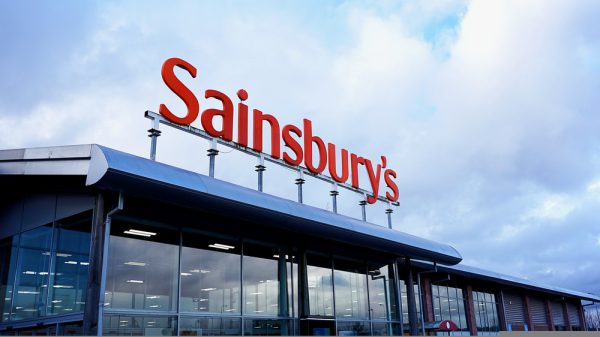Aldi has been staking its claim to a permanent position at the top of the UK retail market of late, and for good reason.
While the UK battles with rising food and energy prices, inflation, a falling pound and serious economic turmoil, Aldi has been doing everything it can to ease the pressure and keep prices low. As a result, millions of Britons have been turning to the German discounter as they hunt for the best deals, chipping away at the market share of its larger rivals in the process.
According to the latest Kantar figures, Aldi has taken £170m of sales from the former ‘Big 4’ (Tesco, Sainsbury’s, Asda and Morrisons) in the three months to early September as it continues to increase its market share across the UK (currently 9.3%).
Breaking that down further, Aldi gained about £64m of sales from Tesco, £43m from Morrisons, £41m from Asda, £21m from Sainsbury’s and £8m from Lidl, according to Bloomberg News.
It was a welcome boost, which saw Aldi overtaking Morrisons last month to be named Britain’s fourth biggest supermarket. It certainly has ambitions of working its way up the UK grocery ladder, but how much more can Aldi grow its ever-expanding empire in its bid to become not only the affordable option, but also the convenient one.
Aldi’s expanding retail empire
Last week, Aldi revealed its plans to open 29 new supermarket stores across the UK, expanding its reach and creating thousands of jobs in the process.
With over 970 stores already in the UK, Aldi plans to open 16 more stores before the end of the year and is set to create nearly 6,000 new jobs in that time, kickstarting its recruitment drive.
Compared to Tesco’s 3,000 store portfolio, Aldi’s reach remains relatively limited. However, it is constantly on the lookout for more potential locations, even offering a finder’s fee to anyone who suggests an appropriate space.
In September’s annual trading update, the supermarket revealed it was prioritising lower prices over short-term profits and in doing so, had attracted record numbers of new shoppers over the past six months. The latest data from retail research firm Kantar confirmed this, showing Aldi attracted 1.5 million extra customers to its stores over the summer, with sales growing by 18.7%.
Other supermarkets have taken note and launched their own pricing strategies – although the jury is still out on whether Tesco and Sainsbury’s ‘Aldi Price Match’ campaigns serve as much more than a reminder of just how low those prices are in the first place.
With Aldi’s rocketing popularity firmly in mind, other retailers have also taken note of its ever-expanding retail empire – to the point where they are actively trying to slow it down.
Opening plans and objections
Aldi’s planning applications have been subject to 77 competitor objections and 12 judicial reviews since 2020 – and these numbers are going up every week.
It is perhaps understandable that rival supermarkets are less than happy at the idea of an Aldi store opening in its customer catchment area, with some interrupting opening plans by issuing planning objections in a bid to disrupt potential competition.
These objections are often made in the form of a judicial review challenge after the initial plans have been given the go-ahead, forcing councillors and building managers to reconsider. The challenges often result in significant, costly delays, which can take up to 18 months to resolve.
“There might be a few cynics in the world that would think that Asda’s objective was something to do with their own competitive position rather than the flood risk to the good people of Medway,” said local councilor Martin Potter.
He went on to describe supermarkets making it difficult for Aldi to open stores as “gangsters with deep pockets trying to run their rivals out of town, not dissimilar to the Las Vegas mobsters who tried to keep their rivals off the strip back in the day”.
Low prices and local shopping
While opening new stores is an important part of its growth strategy, low prices are the absolute priority for Aldi UK & Ireland CEO Giles Hurley.
“The cost-of-living crisis is worsening and it’s being felt by millions of households across the UK,” he said, adding that Aldi will do “whatever it takes” to maintain low prices for its millions of customers.
Amira Freyer-Elgendy, food and grocery analyst at GlobalData, predicts that this gamble will pay off in the long run.
“While 2021 results were marked by slow sales growth and a hefty profit decline, Aldi has been gaining market share in 2022 due to the cost-of-living crisis, as shoppers are flocking to the retailer for its value proposition.
“Aldi’s focus on expansion poses a threat to other retailers – it’s a main switching destination for shoppers looking for value and trying to balance their budget with rising food prices.”
Freyer-Elgendy pointed out that value players are at a significant advantage, with GlobalData’s newest monthly tracker data for September showing that 36% of shoppers who are switching to cheaper retailers are going to Aldi.
“The new stores in development will make Aldi the more affordable and the convenient option – that’s a powerful combination,” she said.
After Aldi took its rightful spot in the Big 4, Morrisons highlighted Aldi’s growing portfolio, pointing out that market share is: “partly a function of new store openings and although Morrisons has not put on any significant new space for a while, some competitors are still opening many new stores”.
Morrisons also responded with price cuts and offers on 150 popular items in a bid to win shoppers back, but Freyer-Elgendy believes that “it has a way to go before shoppers will recognise it as price competitive with Aldi”.
Can Aldi take Asda next?
Now the German discounter is sitting comfortably within the Big 4 could it start rising up through the ranks? The next supermarket in Aldi’s sights is Asda, which currently has 14.1% of the UK grocery market share, compared to Aldi’s 9.3%.
While the discounter certainly has lots of momentum behind it, Freyer-Algendy doesn’t think it will be able to make this leap anytime soon, saying: “the prospects of Aldi overtaking Asda is unlikely in the next few years.”
She points out that it took Aldi two years to close a gap of one percentage point in order to overtake Morrisons, describing Asda as a “harder target”.
But this is only the short-term and it’s been predicted by others that, between them, Aldi and Lidl will overtake Tesco, the UK’s leading supermarket, by 2027. A decade from now – and depending on how long the incoming recession lasts – we may well see Aldi soaring to new heights.











3 Comments. Leave new
There is a vacant ex Waitrose store in Waterlooville, Hampshire. In my view, this would be great as an Aldi.
if they had any sense they would take the waitrose shop in waterlooville it is more accesable to shoppers than where they plan to put it and it is ready too go as it was used for a suppermarket before and their is plenty off parking
i doubt they will be able to take on Asda, Asda is becoming more popular due to food courts and better customer service.